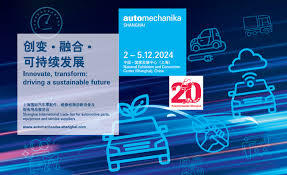

Since 2011, South Carolina’s auto industry has been in the fast lane, attracting over US$5 billion in capital investment from the world’s leading OEMs and Tier 1 suppliers. The region is home to more than 100 automotive manufacturers and suppliers.
Automotive Industries (AI) spoke to Brigadier General Hank L. Taylor, USAF (Ret.) Vice President, Global Business Development for the Charleston Regional Development Alliance, and asked what makes South Carolina – Charleston in particular – attractive to automotive manufacturers.
Taylor: Charleston offers several competitive advantages: a deep concentration of technically-skilled workers, a strategic location halfway between New York and Miami, and globally-connected infrastructure with quick access to world markets. South Carolina is a right-to-work state with low unionization rates and the lowest work-stoppage rates in the US. We have a business friendly tax climate, a diverse real estate portfolio and a world-class lifestyle attributes, as shown by Charleston’s No. 1 spot in Travel + Leisure’s 2013 “World’s Best Awards” for the Best City in North America.
AI: Tell us a little about the experiences of companies like BMW.
Taylor: BMW’s decision to produce its entire X-series model in Spartanburg was a huge win for South Carolina, and the company’s continued investment in our state illustrates the benefits of doing business here. Since Robert Bosch located in Charleston four decades ago, our region has experienced a cascading effect — welcoming companies such as Cummins Turbo Technologies (in 1989), Weber Automotive (in 1996) and Daimler (in 2006). The Charleston region has received more than $91 million in automotive investments over the past two years.
AI: How has the port of Charleston helped establish the automotive hub?
Taylor: Automobiles and auto parts are among Charleston’s top 15 commodities and the entire BMW X-Series fleet is exported from the deep water port of Charleston. As the nation’s fourth busiest container port and the deepest in the South Atlantic, we handle more than $3 million in cargo every hour, offering direct service to more than 150 countries.
AI: What are the other big ticket auto investments in the state?
Taylor: Another major contributor to Charleston’s automotive sector is Streit USA, maker of armored utility vehicles. Charleston is also home to more than a dozen secondary suppliers. South Carolina is on track to becoming America’s tire capital, and is the number one exporter of US-made automobiles.
AI: What role do the educational and training centers in the area play in enabling this vision?
Taylor: The strongest workforce training asset in South Carolina is the Clemson University – International Center for Automotive Research (ICAR), which hosts the US’s only graduate Department of Automotive Engineering. Clemson’s Center for Workforce Development with offices in Charleston and Greenville is a state-wide program to improve workforce educational capacity in STEM fields across South Carolina, particularly for automotive and aerospace sectors. The readySC program works directly with companies to tailor workforce training and education to the company’s specific needs, for free or little cost. It’s also important to note that Charleston’s Trident Technical College was named the national winner for the Automotive Industry Planning Council’s “Award for Excellence in Automotive Education.”
AI: What are some of the major investments you hope to see come into Charleston this year?
Taylor: While we continue to promote Charleston’s competitive assets to the global automotive sector, we are also focused on attracting investment from aerospace, advanced security, energy systems, information technology and biomedical industry targets. In addition to blue chip automotive companies, our region is home to leading corporations like Boeing, Google and BAE Systems














More Stories
New generation of Donaldson compressed air dryer systems offers enhanced reliability and energy efficiency
Lakshmi Prasad Bhatta on the quest for zero road deaths
Cybord TCI – The Future of Manufacturing Integrity